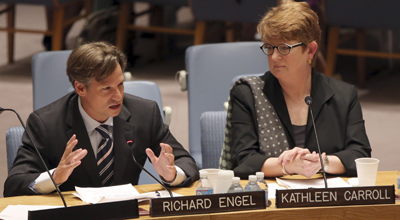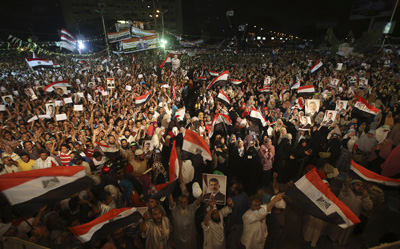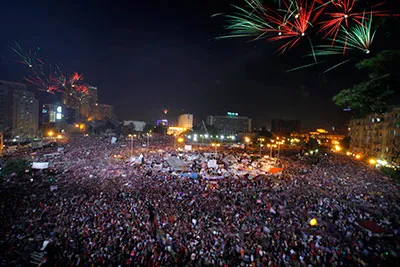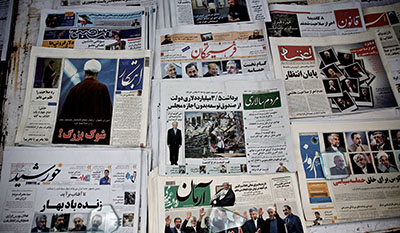Middle East & North Africa
2013

After Security Council, what next for journalist safety?
Speaking at a U.N. Security Council discussion about the protection of journalists, Associated Press Executive Editor and CPJ Vice Chair Kathleen Carroll remembered the 31 AP journalists who have died reporting the news and whose names grace the Wall of Honor that visitors pass as they enter the agency’s New York headquarters. Most were killed…

Surveillance detection for journalists in the field
Much has been made recently about the digital surveillance of journalists–and rightly so–but physical surveillance remains a key tactic of security forces, law enforcement, and private entities. These operatives are monitoring journalists, gathering intelligence on them, and potentially obstructing journalists’ work or putting them at risk.

Amid upheaval, Egypt’s media blunders
The unfolding political tumult in Egypt over the past week has not only captured headlines worldwide, it has taken its toll on journalism and reporting as well. While much of the international media turned their attention away from the country over the past year and assumed democracy was marching along, trouble was brewing in the…

Rouhani can take steps to improve Iran press freedom
After eight hellish years for Iran’s journalists under outgoing President Mahmoud Ahmadinejad, the election of Hassan Rouhani was welcomed with hope for a better future. As soon as he takes office in August, he should act on his view and take steps to protect journalists in Iran.

Attacks in Egypt highlight risk of covering protests
From São Paulo to Istanbul to Cairo, coverage of street demonstrations has re-emerged as an exceptionally dangerous assignment for journalists. Since June 1, CPJ has documented more than 120 attacks on the press amid the civil unrest in Brazil, Turkey, and Egypt–the biggest surge of attacks in such circumstances since the uprisings that swept the Arab world…
Sri Lankan journalist in UAE still at risk of deportation
Lohini Rathimohan, a former television journalist from Sri Lanka, faces an unclear future. The 28-year-old is among 15 Tamil refugees still sheltered in a single room of an aluminum factory at Dubai’s Jebel Ali port whose official statuses remain uncertain.

Medill digital security guide helps fill journalism void
One day, every journalism school in the United States and beyond will offer a full three-credit, 15-week course in digital safety, along with more advanced classes. But that day has not yet come. Only a year ago, Alysia Santo reported in the Columbia Journalism Review that no American journalism school offered formal digital safety training.…
